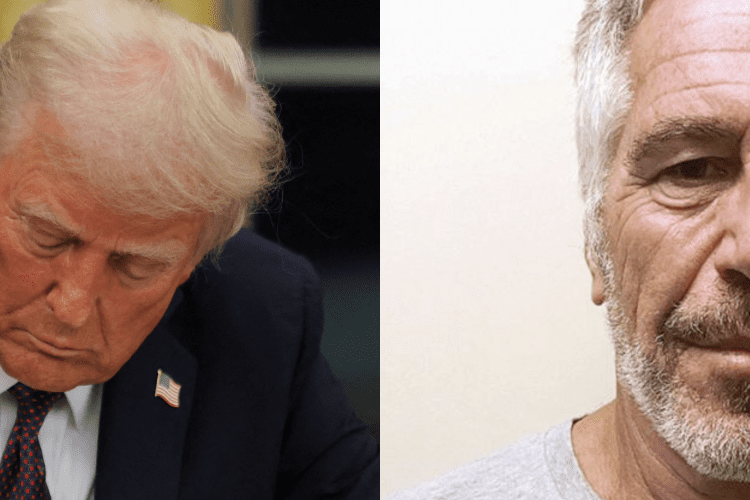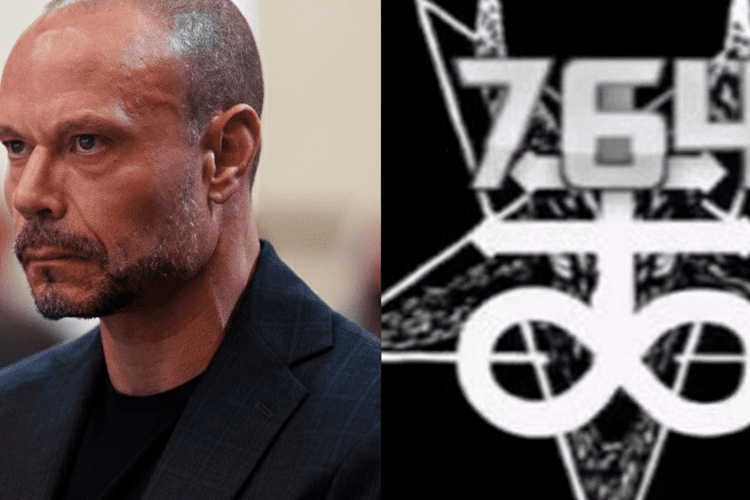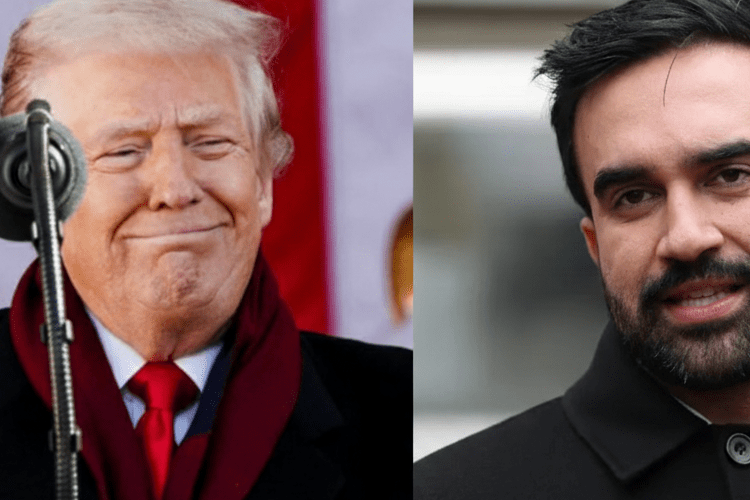From Battlefield Hero to Capitol Hill Pariah: The Wild Night in Mexico That Sparked a GOP Rebellion, Dismantled Crenshaw’s Cartel Squad, and Nearly Booted Him from Secrets Committee
In the sweltering haze of a Mexico City cantina, where the clink of tequila glasses mingles with the murmur of diplomatic whispers, Rep. Dan Crenshaw found himself at the epicenter of a moment that would echo far beyond the border—a toast gone awry that has now rippled through the marble halls of Congress like a tequila-fueled aftershock. It was August 2025, during an official congressional delegation trip aimed at bolstering U.S.-Mexico ties on everything from fentanyl flows to trade pacts, when the Texas Republican, known for his eyepatch swagger and unyielding grit, raised a glass to a crude joke from a Mexican official. The remark, laced with off-color humor that left a female colleague visibly uneasy, wasn’t just awkward; it was the spark that ignited a firestorm back home. Fast-forward to this week, and the fallout has landed like a gut punch: House GOP leaders have slapped Crenshaw with a three-month ban on international travel, quietly disbanded his high-profile cartel task force, and weathered heated calls to yank him from the House Intelligence Committee. As whispers of moderation and missteps swirl around the one-eyed warrior who lost an eye to a Taliban bomb, this saga feels less like Beltway bureaucracy and more like a Shakespearean tumble from grace, leaving supporters heartbroken and critics crowing in a party already fractured by its own fierce ambitions.

Crenshaw’s journey to this crossroads has always carried the weight of legend, a narrative that tugs at the American soul with its blend of sacrifice and stubborn resolve. Elected to Texas’ 2nd District in 2018 after a Navy SEAL career that included two Bronze Stars and that harrowing 2012 IED blast in Helmand Province, he burst onto the scene as the embodiment of post-9/11 heroism—eyepatch and all, a living reminder of the costs of freedom. His memoir, “Fortitude,” became a bestseller, his floor speeches a masterclass in measured conservatism: pro-veteran, pro-border security, but with a centrist streak that championed Ukraine aid and bipartisan infrastructure deals. To the MAGA base, he was a pirate in pinstripes, a defender against “woke” overreach; to the party’s right flank, he was the velvet glove over an iron fist too soft for the fight. That tension simmered long before Mexico, bubbling up in clashes over January 6 accountability and COVID mandates, where Crenshaw’s calls for nuance earned him the scorn of firebrands like Marjorie Taylor Greene. Yet it was on that August CODEL—part of a broader Republican push to reset relations with President Claudia Sheinbaum’s administration amid record migrant surges—that the personal collided with the political, turning a night of networking into a nightmare of accountability.

Picture the scene, pieced together from insider accounts leaked to Punchbowl News on November 19: a dimly lit hacienda-style venue in the heart of the capital, where U.S. lawmakers and their Mexican counterparts traded stories over plates of carnitas and shots of reposado. The delegation, focused on cartel crackdowns and economic corridors, had been productive by day—site visits to maquiladoras, briefings on synthetic opioid labs—but evening brought the informal thaw, the kind of liquid loosening that diplomats swear by and scandals are made of. As glasses refilled, one Mexican official, emboldened by the buzz, cracked a bawdy joke at the expense of a woman in the room—a colleague from the U.S. side, her discomfort palpable in the sudden hush. Eyes turned to Crenshaw, the group’s unofficial toastmaster, who, glass in hand, lifted it in a gesture of camaraderie that prosecutors and peers would later dissect as tone-deaf at best, enabling at worst. “It was meant to keep the vibe light,” a source close to the trip confided, voice heavy with regret. “But in that moment, it crossed a line—alcohol amplified the awkward, and Dan’s SEAL bravado didn’t help.” No formal complaint followed, no HR nightmare unfolded on foreign soil, but word traveled like contraband across the Rio Grande, landing in the inboxes of House leadership by week’s end.
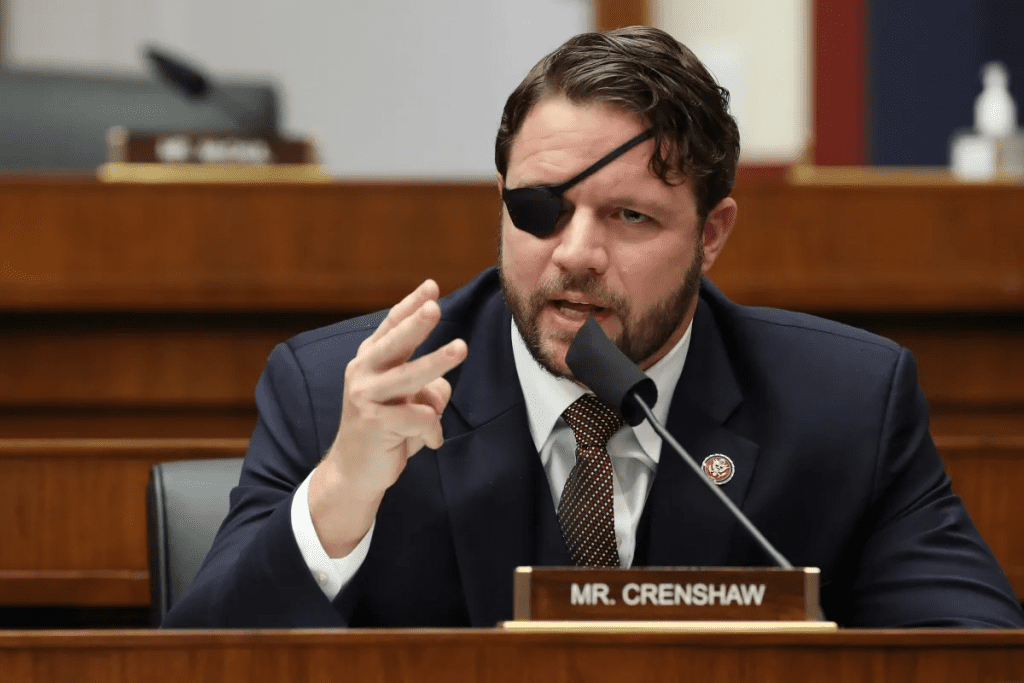
The reckoning came not with thunder, but with the quiet creak of closed doors. Upon the delegation’s return, Crenshaw sat down for what aides described as a “frank but firm” sit-down with Speaker Mike Johnson, the Louisiana evangelical whose steady hand has steered the slim GOP majority through minefields of shutdown threats and impeachment fever dreams. Flanking Johnson was House Intelligence Committee Chairman Rick Crawford, the Arkansas conservative whose frustration with Crenshaw had been simmering for months over funding fights for counterintelligence programs—efforts Crenshaw had dragged his feet on, only for the dollars to squeak through in the final bill. The meeting, held in a nondescript conference room off the Speaker’s suite, grew heated, sources say, with Crawford pushing hard for Crenshaw’s outright removal from the Intelligence panel, a perch that grants access to the nation’s deepest secrets on everything from cyber threats to cartel intel. “Rick was livid—not just about the trip, but the pattern,” one GOP staffer revealed, speaking on condition of anonymity to navigate the party’s fragile fraternal bonds. “Dan’s been a lone wolf on key votes, and this felt like the final straw.” Johnson, ever the mediator with a pastor’s patience, drew the line at expulsion, opting instead for the travel ban—a 90-day grounding that clips Crenshaw’s wings on globe-trotting fact-finds and alliance-building jaunts. In a parallel move, the Speaker’s office greenlit the dissolution of Crenshaw’s cartel task force, a bipartisan brainchild he’d championed since 2023 to laser-focus on fentanyl pipelines, effectively sidelining his border hawk credentials at a time when Trump-era hardliners demand zero tolerance.
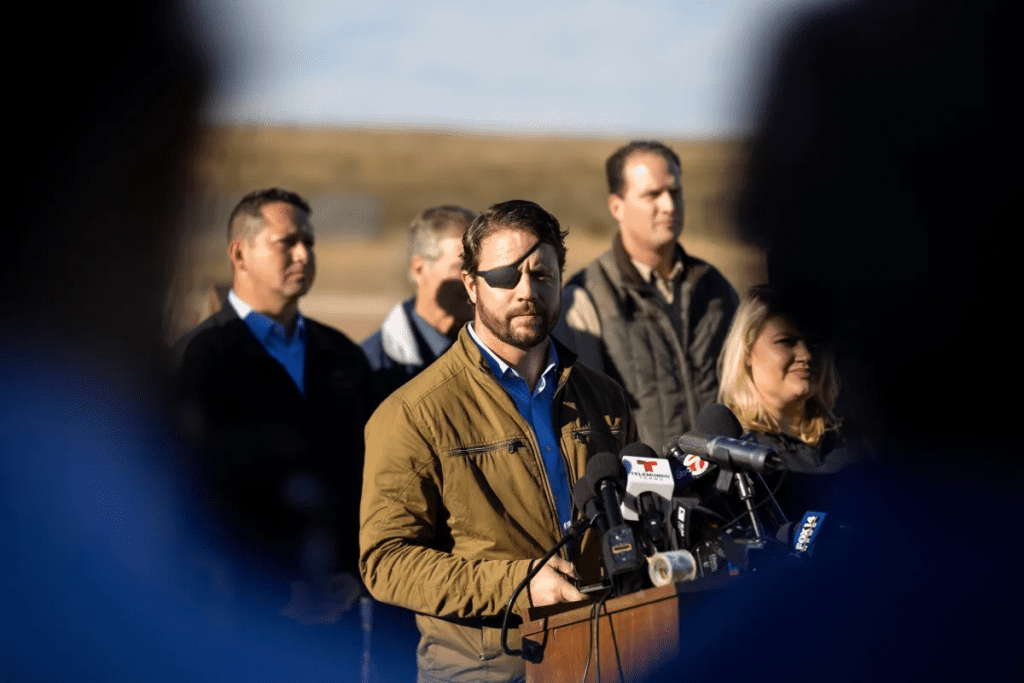
For Crenshaw, the man who once stared down insurgents in moonless Afghan nights, this feels like a betrayal wrapped in brotherly love—a disciplinary slap that stings deeper because it comes from kin. At 41, with a wife and three young daughters waiting in Houston’s leafy suburbs, he’s no stranger to scrutiny; his 2020 SNL skit with Pete Davidson turned viral infamy into armored empathy, but the right’s barbs have cut closer to the bone. Figures like Matt Gaetz and Lauren Boebert have long painted him as RINO royalty—too eager for Ukraine billions, too tepid on election denialism—labeling his moderation a velvet betrayal of the base’s fire. The Mexico mishap, amplified by Punchbowl’s scoop, handed them fresh ammunition: X erupted with memes of eyepatch pirates swilling rum, hashtags like #CrenshawCanned trending alongside calls for his resignation. “Imagine getting grounded like a teenager for a bad joke abroad,” tweeted one conservative influencer, her post racking up 50,000 likes. Yet supporters rally with fierce loyalty, flooding his office lines with messages of solidarity: veterans who see in him a mirror of their own scars, Texas oilmen who value his energy savvy, suburban moms who admire his family-man facade. “Dan’s human—he owns his mistakes,” a longtime donor shared over coffee in The Woodlands, his voice thick with the ache of watching a hero hemmed in. “This party’s eating its own when we need unity most.”
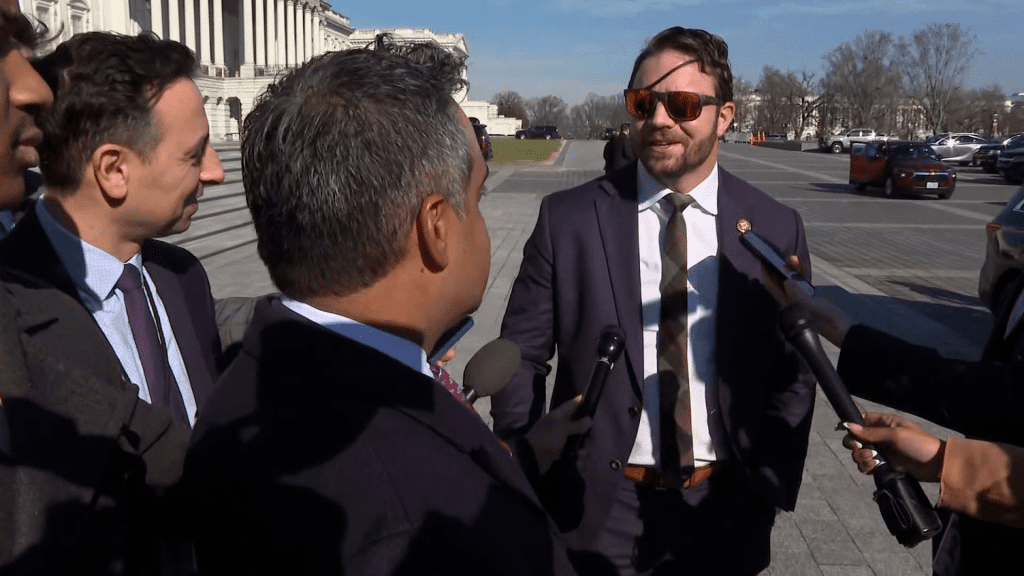
Johnson’s decision to shield Crenshaw from full committee ouster speaks volumes about the Speaker’s tightrope walk in a House where Republicans hold a razor-thin 220-215 edge, every vote a potential veto. A devout Christian who quotes Scripture in strategy sessions, Johnson has mastered the art of tough love—doling out rebukes without rupturing the ranks, much as he did with Gaetz’s speaker bid antics earlier this year. Crawford’s push, rooted in that funding feud where Crenshaw’s abstention nearly derailed spy agency bucks, underscores the Intelligence Committee’s sanctity: a vault of vulnerabilities where lapses in judgment can’t afford loose lips or lighter fluids. “It’s not personal; it’s protective,” a leadership aide explained, framing the ban as a cooling-off period rather than a scarlet letter. The cartel task force’s end hits harder, though—a pet project born from Crenshaw’s border district roots, where fentanyl deaths claim 100 Texans weekly, per CDC tallies. Disbanding it feels like kneecapping a watchdog mid-hunt, especially as Mexico’s Sheinbaum administration dangles cooperation carrots amid U.S. tariff threats. Crenshaw, true to form, hasn’t gone public with contrition; his X feed stays laser-focused on policy wins, a silent storm brewing behind the eyepatch.

This episode, unfolding against the backdrop of a GOP licking wounds from the 2024 midterms where House gains fell short of dreams, lays bare the party’s internal tempests. Trump’s shadow looms large—his Truth Social rants against “disloyal RINOs” echo in every whisper campaign—yet Johnson’s restraint hints at a maturing machine, one that disciplines without destroying. For Crenshaw, the ban’s a forced sabbatical, time to recalibrate amid family barbecues and district town halls, perhaps penning op-eds that reclaim his narrative. Critics on the far right see vindication, a pruning of the moderate branch; allies view it as a badge of battles fought, a testament to the rough-and-tumble of representing a nation at war with itself. In the quiet of a Houston evening, as Crenshaw tucks his kids into bed—stories of far-off adventures now on indefinite hold—one can’t shake the poignant irony: the man who lost an eye for his country’s gaze now finds his own horizons clipped by its guardians. It’s a reminder that in the arena of power, heroes aren’t invincible; they’re human, flawed, and forever chasing redemption. As the three months tick down, Washington watches, wondering if this grounding will ground him—or launch him higher. In the end, for a party forged in fire, it’s not the fall that defines; it’s the fight to stand again.

